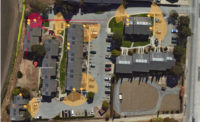Salespeople for Atlanta-based security dealer Ackerman Security like to close the deal on the first call. Helping them do that is software loaded on each salesperson’s tablet computer that can generate a contract and capture the customer’s signature. The software also can generate an installation order and an invoice — and if the salesperson has Internet access, he or she can verify the customer’s credit card and apply payment to the invoice.
This type of software is commonly known as sales management software. And much of the sales management software developed for the security industry has capabilities not found in generic sales management packages.
“Once they’re on the Internet, they can schedule the job,” explains Al Oliver, director of information technology for Ackerman. “And once they’re connected it gives them the account number and sets them up through accounting, sales management and the alarm monitoring system.”
The ability to flow through into other systems is a big benefit to company operations overall because, as Oliver explains, it eliminates the need for duplicate entry of customer data.
When a lead comes in to Ackerman it is entered into the system and automatically sent to a salesperson based on a round-robin approach. The salesperson is required to contact the prospect promptly.
Bay City, Mich.-based Dice Corp. developed the sales management software that Ackerman uses with input from Ackerman. As Cliff Dice, the company’s chief executive officer and president, explains, a dealer can use the software to help salespeople “capture” an account from an end user who already has a system monitored by another dealer. Key to enabling that is the ability to get signed contracts and to connect with the central monitoring station on the spot, observes Dice.
Best foot forward
Sales management software can also be useful in quickly and easily preparing professional proposals that have a consistent look from one salesperson to another.
“Creating proposals with the wrong software is a big waster of time and a daunting challenge,” comments Richard Riehl, president of Thousand Oaks, Calif.-based software developer BidMagic. “Cutting and pasting in Excel, accounting software or Word is a poor choice.”
Several companies offer software that keeps track of the dealer’s cost on specific equipment used in alarm systems. Such software typically lets salespeople click on the equipment that will be used in the proposal to generate an equipment list with pricing based on the dealer’s cost plus a dealer-adjustable margin.
Some distributors or manufacturers have websites from which sales management software can pull cost information, explains Michael Marks, co-founder of Chagrin Falls, Ohio-based software supplier SedonaOffice. Other equipment providers make disks or Excel spreadsheets available with price information, which several of the sales management software programs can import.
“Usually someone at the security company is responsible for that,” explains Marks. “They usually update it once a quarter.”
Other capabilities that may be found in some manufacturers’ software that can help in proposal writing include the ability to automatically calculate the amount of wire and labor required and to automatically calculate pricing using special terms the customer may have negotiated previously. In addition, some software can calculate lease or finance options based on dealer-selectable parameters and can automate the approval process.
The latter is “a huge time-saver as well as a way of guaranteeing the right quote at the right price,” explains Tracy Larson, president of White Plains, N.Y.-based software vendor WeSuite.
Buy or build?
Security dealers that don’t use sales management software sometimes rely on alternative solutions that they developed themselves.
Initially, Chicago-based dealer Early Warning Alarms got along fine with what owner Frank Icuss calls a “hybrid” internally developed solution based on Microsoft database, spreadsheet and word processing software.
“Up to about 1,000 accounts we could manage with that,” recalls Icuss. But when several years ago the company bought 300 accounts from another dealer, Icuss says that was “the tipping point.”
The company now gets sales management software capability as part of a monthly billing service it buys from Lincolnshire, Ill.-based Cornerstone Billing Solutions.
“I figured out I do best when I’m an alarm installer manager rather than a bookkeeper,” comments Icuss.
Icuss also credits the sales management software with helping Early Warning obtain a loan to buy some additional accounts. Icuss had approached a local bank that was not familiar with alarm industry economics. He invited the loan office and the loan officer’s assistant to his office and asked them to pick a customer at random from a list. Using the software, Icuss showed the bankers that the account was paying $325 a year for monitoring, which cost Early Warning just $48 a year.
“The bankers’ eyes lit up,” recalls Icuss.
Management by numbers
Most sales management packages give security dealers the ability to pull up information such as what Icuss describes. In addition, most of them can generate a variety of useful reports.
Many dealers like to run a report that compares their account database with the accounts for which their third-party central station is billing them, notes Scott MacDougal, president of Cornerstone Billing Solutions.
“The report allows them to troubleshoot cases where the central station is monitoring the account but someone dropped the ball and didn’t bill for it,” comments MacDougal.
Much of the sales management software designed for the security business stores information about the equipment used in an installation in the customer’s account record. As MacDougal notes, some dealers are pulling reports showing all accounts with cellular communicators that use GSM technology. Some wireless carriers plan to phase out GSM and dealers are beginning to convert accounts using GSM to an alternative communications option.
Reports summarizing how customers found out about the company also are useful to dealers in determining how to spend their marketing budget, observes Victoria Ferro, president of Kissimmee, Fla.-based software provider Micro Key Solutions.
Knoxville-based Fleenor Alarm Systems has used that capability on the Micro Key software and found it to be a big help in the company’s quarterly reviews of its promotional budget, notes Ivan Shawvan, manager of accounting and software support for Fleenor.
Go generic?
Generic sales management software designed for use in a variety of industries often lacks capabilities that are important in the security business, according to sources interviewed for this story. Generic sales management software isn’t designed to cope with recurring monitoring revenue, some say.
The ability to flow through to systems unique to the security industry, such as central station automation software, also can be critical. And that type of flow-through may be easier to achieve using sales management software designed for the security industry.
“If you went with Salesforce.com, you would have to get with the individual companies that deal with alarm and accounting database,” observes Oliver. Integrating those systems might require middleware, which Oliver describes as “in-between software” to enable the different software programs to communicate with each other.
But developers of sales management software designed for the security business typically have already done the work to enable the software to talk to other systems that are critical to the security business.





